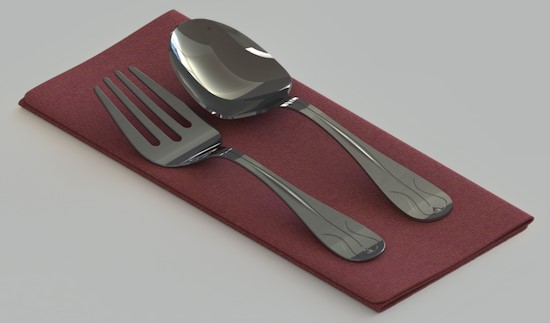“Look!“ My coworker pointed a finger at the picture on her iPhone. There it was – proof. I might be a lawyer, but I don’t know anything about taking care of the elderly. Proof that I wasn’t doing things the way they are supposed to be done. Worse, it was clear my transgression was willful, the result of a judgment I had no right to make.
The proof? A picture of a table top with three napkins upon which had been placed a fork and spoon, but no knife! Why else, she asked, would the knives be missing, but for the fact that I had made an unwarranted judgment that some elderly residents could not use a knife, thereby robbing them of the chance to preserve their skills? She was so upset she had shown the picture to the Director. I couldn’t argue with the proof. It was true the knives were missing.
Why?
I ran out of clean knives.
At first I was incredulous. Really? Missing knives? Then I laughed, because it was truly kind of funny. How often do we jump to complex, drama conclusions instead of simple ones? How often are we blind to our own internal perceptions?
As the Course says, “The blind become accustomed to their world by their adjustments to it. They think they know their way about in it. They learned it … through the stern necessity of limits they believed they could not overcome. … they hold those lessons dear and cling to them because they cannot see. They do not understand the lessons keep them blind. … And so they keep the world they learned to ‘see’ in their imagination, believing that their choice is that or nothing.” (OrEd.Tx.21.6)
Think about it. Even if the knives are missing, do we really know what that means?

